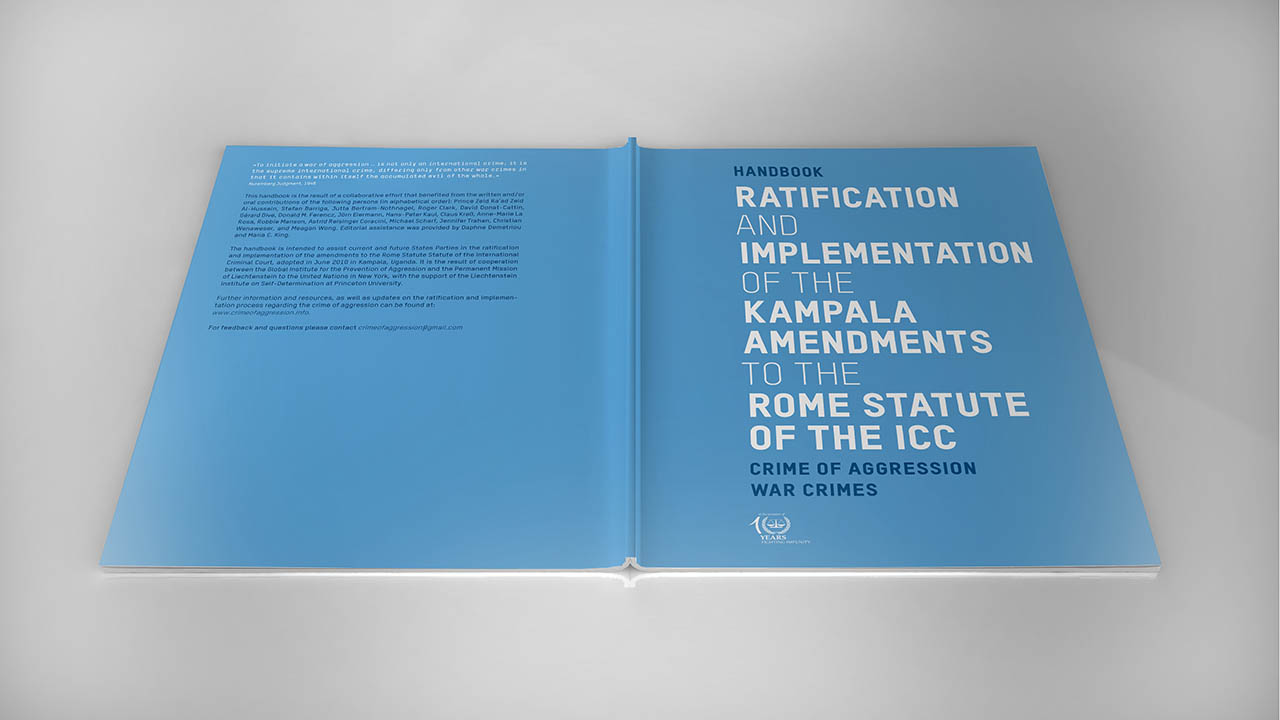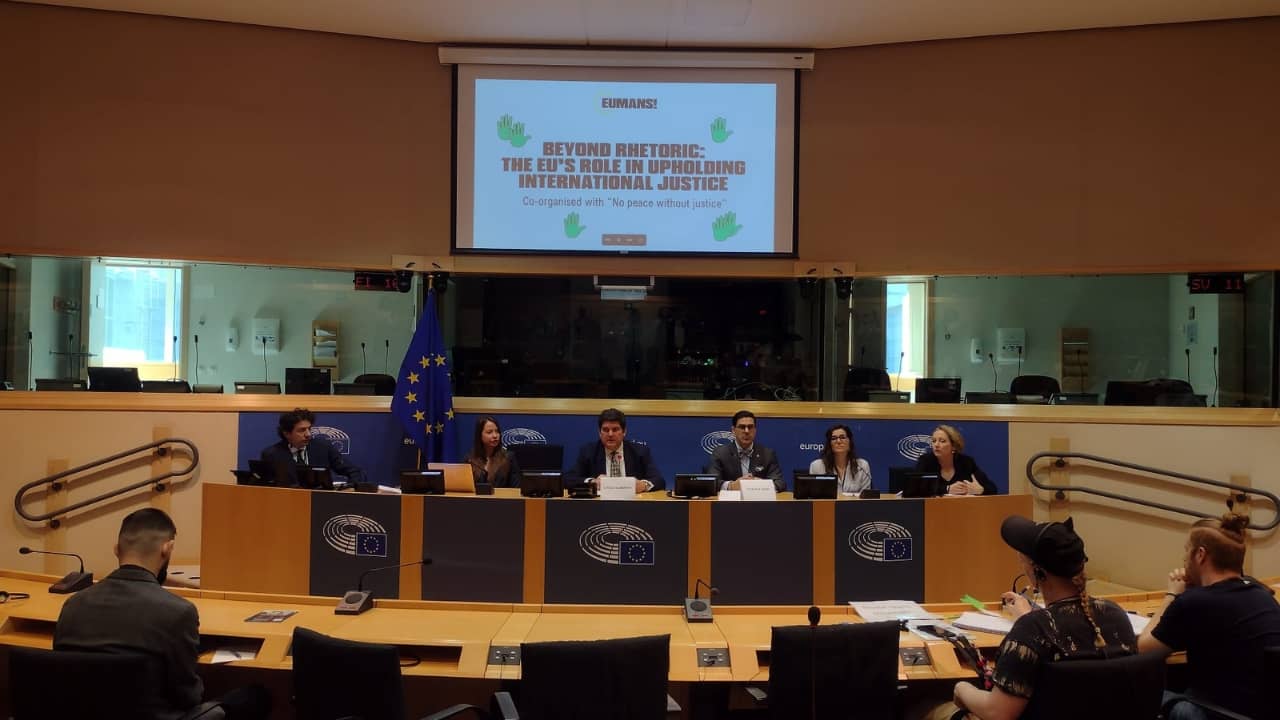
The 20th century was marked by armed conflicts and the commission of crimes that shocked the conscience of humanity. In the wake of the Second World War, the Nuremberg and Tokyo international military tribunals were established to bring perpetrators to justice, moving away from the impunity-paradigm that characterized the period between the two World Wars. With the adoption of the Convention on the Prevention and Punishment of the Crime of Genocide in 1948, which provides for the establishment of an international criminal court, the United Nations General Assembly (UNGA) invited the International Law Commission (ILC) to work on the draft statute of a permanent international judicial body to try those charged with genocide and other crimes under International Law.
With the advent of the Cold War, the concept of a system of international criminal justice was “frozen” for several decades. In 1989, with the fall of the Berlin wall, the UN General Assembly decided to reassign the ILC with the task of preparing for an international criminal court. The basis for this was an unanimously adopted UNGA resolution that had been drafted and tabled by the Prime Minister of Trinidad and Tobago, Mr. ANR Robinson, MP. Mr. Robinson was a member of the PGA Executive Committee who helped setting up PGA’s International Law and Human Rights Program.
In the 1990s, the world once again witnessed unspeakable atrocities committed in former Yugoslavia and in Rwanda, in the face of the inaction by the International Community to halt mass atrocities, the United Nations Security Council (UNSC) decided to establish ad hoc tribunals for each of these situations in 1993 and 1994. These events spearheaded the decision of the ILC to produce a draft statute for an international criminal court in 1994, which was submitted for consideration of the UN Ad Hoc Committee on an International Criminal Court (ICC) in 1995. The same year, Italy offered to the UNGA to host and sponsor a Diplomatic Conference of Plenipotentiaries for the adoption of a statute of an ICC. The UNGA accepted the offer and set up a Preparatory Committee for the establishment of an international criminal court between 1996-1998, which transmitted the text of a draft Statute to the Rome Diplomatic Conference. The Rome Conference took place from 15 June to 17 July 1998 and ended with the adoption of the Rome Statute of the ICC, which the Secretary-General of the UN Kofi Annan welcomed as a “gift of hope for future generations.”
On 17 July 1998, representatives of 160 States adopted the Rome Statute of the ICC. 120 States voted in favour, 7 States against, and 21 abstained, while 12 States did not attend the final vote, which took place after midnight. This gave birth to the first permanent and independent international court capable of investigating and bringing to justice individuals who commit the most serious violations of international criminal law, international humanitarian law and human rights, namely: genocide, crimes against humanity, war crimes, and crime of aggression.
However, States continue to be fundamental to ensuring that perpetrators of international crimes are held accountable given that the ICC is not a supranational organization, but an international organization based on State and inter-State cooperation and enforcement.
Firstly, the ICC is a court of last resort and does not substitute national courts. According to the Rome Statute, the ICC can only intervene where a State is unable or unwilling to genuinely carry out the investigation and prosecute the perpetrators. Secondly, the ICC does not have its own police force, which is why it relies on State and inter-State cooperation for the arrest and surrender of suspects.
For the system established by the Rome Statute of the ICC to become truly universal and effective, Members of Parliament (MPs) play a pivotal role. Using their legislative prerogatives, they can advance the ratification of the Rome Statute and its amendments, the implementation of the Statute in domestic legal frameworks, and the signature of bilateral cooperation agreements with the ICC, as well as the ratification of Agreement on Privileges and Immunities of the International Criminal Court (APIC). Since the Rome Statute system is not supported by any international parliamentary body; PGA’s Campaign for the Rome Statute of the ICC is also designed to create, develop and maintain a “global” parliamentary constituency for the ICC.
The International Criminal Court (ICC) in three minutes
PGA commemorated, in July 2023, the 25th Anniversary of the adoption of the Rome Statute of the International Criminal Court (ICC)
In September 1998, PGA launched the Campaign for the Universality and Effectiveness of the System of the Rome Statute of the International Criminal Court (ICC). The ratification of the Rome Statute by Ghana, in 1999, was the first achievement of the Campaign. Such achievement was championed by PGA Board Member Hon. Albin Bagbin, MP (Ghana), who drafted a law to ratify the Rome Statute and proposed to the Government of Ghana to transmit it to Parliament. In his capacity as Chair of the Legal Affairs Committee, Hon. Bagbin presided over an accelerated process of approval, making Ghana the 4th State to join the Rome Statute system.
The Campaign intends to promote a universal culture of upholding the Rule of Law, human rights and human dignity by fighting impunity for the commission of genocide, war crimes, crimes against humanity and the crime of aggression. These efforts are in line with Sustainable Development Goal (SDG) 16, particularly Target 16.3, which commits governments to promote the rule of law at the national and international levels and ensure equal access to justice for all.
To achieve its goal, the Campaign for the Rome Statute of the ICC pursues the following:
To adapt the Campaign’s efforts to the needs of specific countries, groups of countries or regions, the PGA Secretariat works with MPs at the national, regional, and international levels.
Target countries
PGA uses a peer-to-peer methodology to generate action in support of the ratification and domestic implementation of the Rome Statute, alongside other strategic initiatives aimed at fighting impunity and ensuring access to justice for victims.

We urge all members of parliaments to sign this declaration in a powerful demonstration of global solidarity with the ICC.

It is imperative that the Rome Statute be ratified universally for the successful functioning of the Court. Parliamentarians should ensure that the ICC is truly universal.
Created by the Rome Statute, the International Criminal Court (ICC) is the first permanent and independent international court capable of investigating and bringing to justice individuals who commit the most serious violations of international criminal law, international humanitarian law, and human rights.
The Rome Statute defines the crimes under the Court’s jurisdiction and provides the general principles and procedures for the operation of the Court. It also outlines the cooperation obligations of its State Parties. It is imperative that the Rome Statute be ratified universally for the successful functioning of the Court. Parliamentarians should ensure that the ICC is truly universal.

|
|
|
|
|
|
|
125 countries are States Parties to the Rome Statute of the International Criminal Court. Of these, 33 are African States, 19 are Asia-Pacific States, 20 are from Eastern Europe, 28 are from Latin American and Caribbean States, and 25 are from Western European and other States. |
|
| States that have ratified the Kampala Amendment to Article 8 of the Rome Statute on war crimes [poison and expanding bullets in NIAC] (2010) | [43] |
| States that have ratified the Kampala Amendment to the Rome Statute on the crime of aggression reflected in Article 8 bis (entered into force on 17 July 2018) | [43] |
| States that have ratified the Amendment to Article 124 of the Rome Statute (2015) - not yet in force | [18] |
| States that have ratified the Amendment to Article 8 of the Rome Statute on war crimes prohibiting employing weapons the primary effect of which is to injure by fragments undetectable by x-rays in the human body (entered into force on 2 April 2020) | [10] |
| States that have ratified the Amendment to Article 8 of the Rome Statute on war crimes [Weapons which use microbial or other biological agents, or toxins] (2017) | [12] |
| States that have ratified the Amendment to Article 8 of the Rome Statute on war crimes [Blinding laser weapons] (entered into force on 2 April 2020) | [10] |
| States that have ratified the Amendment to Article 8 of the Rome Statute on war crimes [Intentionally using starvation of civilians in NIAC] (adopted on 6 December 2019) - not yet in force | [8] |
| States that have ratified the APIC | [79] |
| States that have signed bilateral agreements with the ICC on relocation of witnesses and victim’s protection* | [40] |
| States that have signed bilateral agreements with the ICC on enforcement of sentences* | [19] |
| States that have signed bilateral agreements on interim release* | [2] |
| States that have signed bilateral agreements on final release* | [1] |
| States that have adopted at least partially domestic implementing legislations on complementarity** | [71] |
| States that have adopted domestic implementing legislations on cooperation** | [58] |
*As agreements may be confidential, this data may be partial.
**By domestic implementing legislation PGA means national laws that give effect to the obligations under the Rome Statute of the ICC in the domestic legal order. States can implement the Rome Statute by adopting stand-alone legislation or by amending existing legislation (e.g. Penal Code, Code of Criminal Procedure). A few States had to amend their Constitution to align their system with the Rome Statute requirements. PGA developed expertise in all these areas of legal reform since 1999.
Thanks to this Campaign, PGA has been recognized as the parliamentary network working on international justice and the ICC.
PGA members have been instrumental in:
Supported by an expert Secretariat, PGA members work together to educate, sensitize, build technical capacity, and strengthen the political will of parliamentarians to achieve campaign objectives through concrete legislative and policy initiatives. PGA works with individual parliamentarians in their national contexts through country-specific strategies, leveraging that capacity with international networking to facilitate connections among parliamentarians and build bridges with civil society, domestic and international policy-makers, and other stakeholders.

On 6 March 2025, PGA co-sponsored an event calling for urgency in upholding international justice in an increasingly hostile global environment. Organized by the NGO No Peace Without Justice (NPWJ), the discussion took place during the EUmans Congress.

On 11 March 2025, Philippine authorities arrested former President Rodrigo Duterte in Manila and transferred him to the International Criminal Court (ICC) in The Hague.
